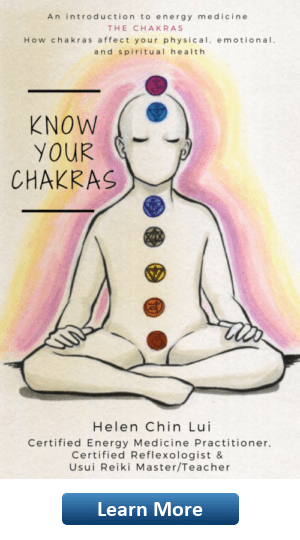Growing up in an Asian household we were taught many things. One of lessons was the importance of conscious eating. What does that mean? Eating the right balance of foods that would not upset the body’s “chi.” The list went on and on (in a good way).
Eating lessons have been imprinted into the back of my brain through my entire adulthood, such as eating too much can cause the digestive system to overwork and be in distress. Don’t eat food that is too alkaline or acidic. Don’t eat overly hot or cold food or drinks which can increase or lower body temperature. Avoid fried and processed foods if you can.
The reason why my family was so rigid with these rules was they knew that food imbalances could cause inflammation in the body.
What is Body Inflammation?
Inflammation is your body’s first response of a compromised immune system. It can be an infection or irritation – whether from your diet, lifestyle or environment. Think of what happens when you catch a cold. You may experience inflammation in the form of a fever as your body heats up to eradicate the effects of the invading virus.
Did you know that inflammation is the common link between such debilitating conditions as Alzheimers, heart disease, cancer, and arthritis? Did you know inflammation is thought to be the culprit behind the visible signs of aging? Inflammation is a wellness buzz-word these days, and for good reason. If you reduce inflammation in your body, you’ll not only look and feel younger, but you’ll significantly lower your risk for chronic disease!
Research has shown that eating the wrong foods can cause inflammation within our bodies. Being overweight can itself be the cause of inflammation.
What Can Cause Inflammation?
It is believed that one of the main causes of inflammation is low-grade bacterial, viral, and fungal infections in the bloodstream and organs like the stomach and gastro-intestinal tract.
Body Fat
Fatty tissues of the body secrete hormones that regulate the immune system and inflammation, but in the case of an overweight individual these can become out of control. Three of the hormones that play a role in metabolism are leptin, resistin and adiponectin.
Leptin is a hormone that is involved in appetite control.
Resistin is a hormone that increases insulin resistance.
Adiponectin lowers the blood sugar by making your body more insulin sensitive.
The fact that it is the fatty tissue that produces these hormones makes the fat self-regulating, as the hormones should act to bring the increased fat under control. Bodies with more fat will produce more leptin bringing the appetite under control. However, in cases where the body is inflamed, there is often a problem with leptin resistance, and the self-regulation of fat does not occur. Leptin resistance is where to body stops responding to the appetite controlling effects of the hormone.
In addition to these metabolism regulating hormones, your fatty tissue also produces chemicals that cause inflammation and this can make the problem of leptin resistance worse. This is why obesity can cause an increase of these inflammatory chemicals which in turn inhibit the correct balancing function of the weight controlling hormones. This results in a vicious circle of weight gain causing inflammation which inhibits hormone function thereby causing further weight gain.
Other causes of inflammation include:
- Chronic low-grade food allergies or food sensitivities that may cause few symptoms.
- An imbalance of bacteria and fungi in your gastrointestinal tract, also known as Dysbiosis. This causes your immune system to overreact to bacteria in your gut and can be without notable symptoms.
- Stress! Constant psychological, emotional or physical stress raises the level of cortisol, creating inflammation.
- Environmental toxicity from our air, water, food pollutants and toxic metals like mercury and lead all contribute to inflammation and have been linked to diseases as varied as endometriosis and cancer.
- Diet and lifestyle: too much fat, sugar, and protein in your diet, constant dehydration, consumption of too many sodas, caffeine, and alcohol, too many dairy and gluten products, inactivity, and lack of sleep can all increase inflammation in your body.
Symptoms of inflammation include:
Visible signs of aging like wrinkles.
Susceptibility to bacterial, fungal, and viral infections.
Acid reflux
Cancer
Skin conditions like psoriasis and acne.
Arthritis
Bronchitis
Chronic pain
Diabetes
High blood pressure
Osteoporosis
Heart disease
Candidiasis
Urinary tract infections
How to Reduce Inflammation?
To restore your body’s balance, it is suggested going “back to basics” with both diet and lifestyle.
- Increase mineral and antioxidant intake
- Reduce or eliminate sugar and processed foods
- Get plenty of sleep
- Soak up the Sun – Vitamin D, available from sunlight, is an easy way to effectively stop inflammation. 15 minutes daily of unprotected sunlight.
- Exercise is one of the greatest ways to counter inflammation.
Foods that reduce Body Inflammation –
Vegetables: bell peppers, bok choy, broccoli, broccoli sprouts, brussels sprouts, cabbage, cauliflower, chard, collards, fennel bulb, garlic, green beans, green/spring onions, kale, leeks, olives, spinach, sweet potatoes, turnip greens.
Fruits: Acerola (west Indian) cherries, apples, avocados, black currants, blueberries, fresh pineapple, guavas, kiwifruit, kumquats, lemons, limes, mulberries, oranges, papaya, raspberries, rhubarb, strawberries and tomatoes.
Fish: cod, halibut, herring, oysters, rainbow trout, salmon, sardines, snapper, striped bass, tuna and whitefish.
Nuts & Seeds: almonds, flaxseed and linseed, hazelnuts, sunflower seeds and walnuts.
Herbs & Spices: basil, cayenne and chili pepper, cinnamon, cloves, cocoa (at least 70%), licorice, mint, oregano, parsley, rosemary, thyme and turmeric.
Oils: extra virgin olive oil and avocado oil.
Beverage: green tea
About the writer – Helen Chin Lui is a Certified Reflexologist and Certified Energy Medicine practitioner. She is the owner of the Healing Place in Medfield, MA. She specializes in helping people of all ages to find long term relief from chronic digestive disorders, chronic pain and balances hormones naturally. To schedule a free consultation call 508 359-6463.









Recent Comments